Related Research Articles
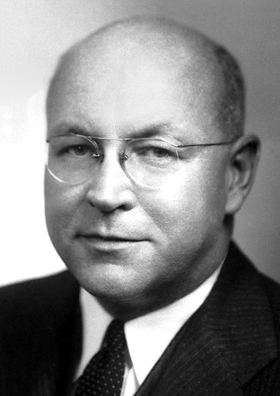
Wendell Meredith Stanley was an American biochemist, virologist and Nobel laureate.

Heinrich Otto Wieland was a German chemist. He won the 1927 Nobel Prize in Chemistry for his research into the bile acids.
The Wolf Prize in Chemistry is awarded annually by the Wolf Foundation in Israel. It is one of the six Wolf Prizes established by the Foundation and awarded since 1978; the others are in Agriculture, Mathematics, Medicine, Physics and Arts.
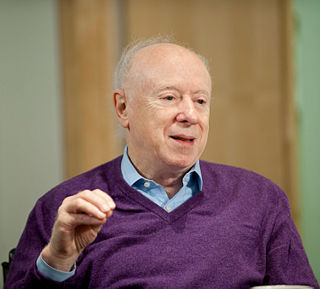
Joseph Leonard Goldstein ForMemRS is an American biochemist. He received the Nobel Prize in Physiology or Medicine in 1985, along with fellow University of Texas Southwestern researcher, Michael Brown, for their studies regarding cholesterol. They discovered that human cells have low-density lipoprotein (LDL) receptors that remove cholesterol from the blood and that when LDL receptors are not present in sufficient numbers, individuals develop hypercholesterolemia and become at risk for cholesterol related diseases, notably coronary heart disease. Their studies led to the development of statin drugs.

Michael Stuart Brown ForMemRS NAS AAA&S APS is an American geneticist and Nobel laureate. He was awarded the Nobel Prize in Physiology or Medicine with Joseph L. Goldstein in 1985 for describing the regulation of cholesterol metabolism.
The Louisa Gross Horwitz Prize for Biology or Biochemistry is an annual prize awarded by Columbia University to a researcher or group of researchers who have made an outstanding contribution in basic research in the fields of biology or biochemistry.
C.H. Boehringer Sohn AG & Co. KG is the parent company of the Boehringer Ingelheim group, which was founded in 1885 by Albert Boehringer (1861–1939) in Ingelheim am Rhein, Germany. As of 2018, Boehringer Ingelheim is one of the world's largest pharmaceutical companies, and the largest private one. Headquartered in Ingelheim, it operates globally with 146 affiliates and more than 47,700 employees. Unlike most large pharmaceutical companies which are listed, the company is private and fully owned by the Boehringer, Liebrecht and von Baumbach families. The company's key areas of interest are: respiratory diseases, metabolism, immunology, oncology and diseases of the central nervous system. Boehringer Ingelheim is a full member of the European Federation of Pharmaceutical Industries and Associations (EFPIA). The corporate logo of Boehringer Ingelheim depicts a stylized rendition of the central section of the imperial palace of Charlemagne.
Steven Victor Ley is Professor of Organic Chemistry in the Department of Chemistry at the University of Cambridge, and is a Fellow of Trinity College, Cambridge. He was President of the Royal Society of Chemistry (2000–2002) and was made a CBE in January 2002, in the process. In 2011, he was included by The Times in the list of the "100 most important people in British science".

Roger David Kornberg is an American biochemist and professor of structural biology at Stanford University School of Medicine. Kornberg was awarded the Nobel Prize in Chemistry in 2006 for his studies of the process by which genetic information from DNA is copied to RNA, "the molecular basis of eukaryotic transcription."

Carolyn Ruth Bertozzi is an American chemist and Nobel laureate, known for her wide-ranging work spanning both chemistry and biology. She coined the term "bioorthogonal chemistry" for chemical reactions compatible with living systems. Her recent efforts include synthesis of chemical tools to study cell surface sugars called glycans and how they affect diseases such as cancer, inflammation, and viral infections like COVID-19. At Stanford University, she holds the Anne T. and Robert M. Bass Professorship in the School of Humanities and Sciences. Bertozzi is also an Investigator at the Howard Hughes Medical Institute (HHMI) and is the former director of the Molecular Foundry, a nanoscience research center at Lawrence Berkeley National Laboratory.
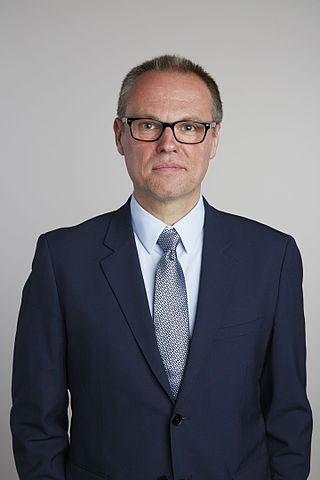
Gero Andreas Miesenböck is an Austrian scientist. He is currently Waynflete Professor of Physiology and Director of the Centre for Neural Circuits and Behaviour (CNCB) at the University of Oxford and a fellow of Magdalen College, Oxford.
Franz-Ulrich Hartl is a German biochemist and the current Executive Director of the Max Planck Institute of Biochemistry. He is known for his pioneering work in chaperone-mediated protein folding.
The Ernst Jung Prize is a prize awarded annually for excellence in biomedical sciences. The Ernst Jung Foundation, funded by Hamburg merchant Ernst Jung in 1967, has awarded the Ernst Jung Prize in Medicine, now €300,000, since 1976, and the lifetime achievement Ernst Jung Gold Medal for Medicine since 1990.

Nenad Ban is a biochemist born in Zagreb, Croatia who currently works at the ETH Zurich, Swiss Federal Institute of Technology, as a professor of Structural Molecular Biology. He is a pioneer in studying gene expression mechanisms and the participating protein synthesis machinery.

Joachim Heinrich Seelig is a German physical chemist and specialist in NMR Spectroscopy. He is one of the founding fathers of the Biozentrum of the University of Basel. He reached emeritus status in 2012.
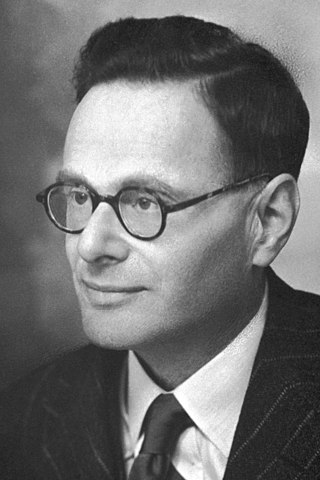
The Sir Hans Krebs Lecture and Medal is awarded annually by the Federation of European Biochemical Societies (FEBS) for outstanding achievements in Biochemistry and Molecular Biology or related sciences.
The Otto Warburg Medal is awarded annually by the German Society for Biochemistry and Molecular Biology to honour scientists who have contributed important work in the field of biological chemistry. It is named after Otto Warburg, a renowned German physiologist and Nobel Prize laureate. It was first awarded on his 80th birthday on 8 October 1963.

The Ernst Schering Prize is awarded annually by the Ernst Schering Foundation for especially outstanding basic research in the fields of medicine, biology or chemistry anywhere in the world. Established in 1991 by the Ernst Schering Research Foundation, and named after the German apothecary and industrialist, Ernst Christian Friedrich Schering, who founded the Schering Corporation, the prize is now worth €50,000.
Reinhard Jahn is a German biophysicist and neurobiologist known for his studies of cellular membrane fusion. For these investigations, he has been honored with numerous awards, including the 2000 Leibniz Award. Jahn is currently Director at the Max Planck Institute for Biophysical Chemistry and the President of the University of Göttingen in Göttingen, Germany.
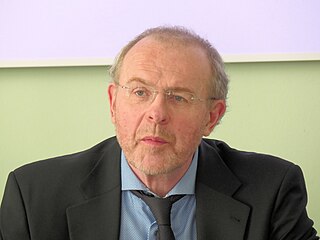
Thomas Boehm is a German immunologist. He is a Director of the Max Planck Institute for Immunobiology and Epigenetics in Freiburg im Breisgau. He has won a variety of prizes for his research work.
References
- ↑ "Director of the Department of Chemistry, University of Cambridge, UK - Heinrich Wieland Prize 2009 for outstanding achievements in the synthesis of key natural products". heinrich-wieland-prize.de. Boehringer Ingelheim Stiftung. Retrieved 7 October 2014.
- ↑ "Professor Nenad Ban, PhD - Institute of Molecular Biology & Biophysics, Swiss Federal Institute of Technology (ETH), Zurich, Switzerland Heinrich Wieland Prize 2010 for his definition of the molecular architecture of fatty acid synthase multi-enzymes". heinrich-wieland-prize.de. Retrieved 7 October 2014.
- ↑ "Proteins: It all depends on a correct folding plan - The protein researcher Franz-Ulrich Hartl will be awarded the Heinrich Wieland Prize 2011". biochem.mpg.de. Max Planck Institute of Biochemistry. 27 October 2011. Retrieved 7 October 2014.
- ↑ "Carolyn R. Bertozzi - Honors and Awards". cchem.berkeley.edu. Archived from the original on 13 August 2014. Retrieved 7 October 2014.
- ↑ "Heinrich Wieland Prize 2013 goes to Epigenetics Pioneer Tony Kouzarides" . Retrieved 7 October 2014.
- ↑ Laureate 2017
- ↑ Laureate 2022